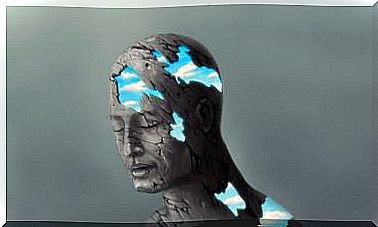The Actor-observer Bias In Social Psychology

Actor-observer bias is a type of attributional bias. It is a concept of social psychology that refers to the tendency to attribute one’s own behaviors to internal motivations (“I was wrong because the problem was very difficult”) while at the same time ascribing the behaviors of other people to internal factors or causes ( Ana has made a mistake because she is not intelligent).
The actor-observer bias plays a fundamental role in the way we perceive and interact with other people. In essence, people tend to make different attributions depending on whether they are the actor or the observer in a situation.
The actor-observer bias
When a person judges his own behavior and is the actor, he is more likely to attribute his actions and the results of them -especially if they are negative- to situational circumstances (eg bad weather) or passing peculiarities (eg tiredness) than to internal and relatively stable variables, such as personality
However, when an observer explains the behavior of another person (that is, the actor), he is more likely to attribute his behavior to the general disposition of the actors rather than to the factors of the concrete situation.

The actor-observer bias tends to be more pronounced in situations where the results are negative : in some way, by blaming the situation or circumstances for what happened, we protect our self-concept. However, when something negative happens to another person, others often blame that person for their personal choices, behaviors, and actions, rather than external circumstances.
In this sense, researchers have found that people do not fall into the actor-observer bias as much with people they know well, such as close friends and family. But why this?
The reason seems to be that when we have more information about the needs, motivations, and thoughts of these close individuals, the more likely we are to take into account the external forces that affect their behavior.
One possible reason for the actor-observer bias is that when people are the actors in a situation, they are more aware of the circumstances of the situation. However, on many occasions, when we make an attribution in which the actor is another, we are unaware of a large part of these circumstances. However, what we do have is the memory of someone associated with stable characteristics.
The actor-observer bias and the fundamental attribution error
Often, the actor-observer bias is confused with the fundamental attribution error. But, although both are types of attribution biases, they are different from each other. Actor-observer bias and fundamental attribution error are basically two sides of the same coin. Both terms refer to the same aspect of attributive bias, but they do not mean the same thing.
Unlike the actor-observer bias, the fundamental attribution error does not take into account our behavior. It is often restricted to internal causes of other people’s behavior.
Our tendency to explain another person’s behavior based on internal factors, such as personality or disposition, is explained as a fundamental attribution error. Therefore, the fundamental attribution error only focuses on the behavior of other people. These are strictly attributions for the behaviors of others.
Therefore, we can say that while the fundamental attribution error is an attribution bias that discusses our tendency to explain someone’s behaviors in their internal dispositions, the actor-observer bias compares how we make attributions when we are in a place and in other (actors or observers).

Impact of actor-observer bias
Actor-observer bias can be problematic, as it can lead to misunderstandings and arguments. This is because, having two different points of view, that of the observer and that of the actor, two people may not agree on what has happened.
In fact, it seems logical to think that there cannot be an agreement when both parties attribute individual behaviors to external situations ( external attribution) and the other party’s situation to their traits (internal attribution) .
Taking a step back and identifying the circumstances in which Ana could not solve the problem or Juan lied can avoid a conflict, in addition to leading us from our error and giving us a more just vision. If we do it with ourselves, why not try to do it with others as well?









